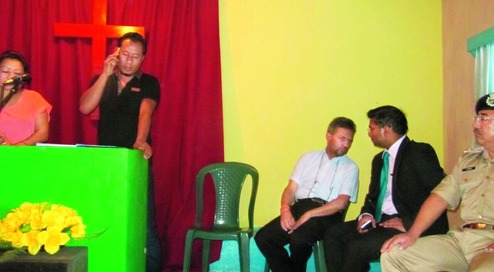
Guwahati, July 23: Landlines are passé in Nagaland's jails where cell phones have taken over in the interests of security.
The jails will now permit limited cell phone contact and maintain call records to check unauthorised use of telephones.
The state prisons department will allow use of only three registered cell phone numbers each by the jail inmates to let them remain in touch with their family and will monitor their use.
The director-general of prisons (headquarters) and civil defence, Rupin Sharma, told The Telegraph that the steps have been taken following reports that criminal gangs and militants were using the cell phones to maintain contact with their members in the state jails.
"Each inmate has been asked to give two phone numbers of their family members and one of a lawyer. The numbers have been registered with the jail office with records sent to the prisons headquarters at Kohima. The inmates will be allowed to dial the three numbers only. This way the inmates can easily remain in touch with their family and at the same time we can check the unauthorised use of cell phones."
A project named Call Home was formally launched in Mokokchung jail on July 15 and the facility is now available in all the 11 jails of the state.
There are nearly 500 inmates in jails, including 100 convicts and the rest are undertrials.
The jail staff have been asked not to allow the inmates to use their phones and warned of strict action in case of violation of the order.
"Jail staff have been asked not to carry their cell phones in the inmates' area and we have informers in jail to keep watch on unauthorised use of phones," Sharma said.
Earlier, inmates used the landline phone number, which made it difficult to maintain call records.
"Now we know who they are calling by going through the call records. We have decided to register the phone numbers of the inmates' lawyers so that they can talk about the status of their case. As communication is a problem in Nagaland, it is not always possible for the lawyers to visit their clients in jail," he said.
Tihar Jail has jail booths with user cards for each inmate with a time limit to speak and calls are recorded for security reasons. "We can also go for recording facility in the future if required," he said.
The prisons department had recently joined hands with NGOs, churches, skills development agencies in order to provide skill development training to all the inmates.
Nearly 100 inmates in the four jails have been provided training on how to make detergent powder, dishwasher liquid, organic manure, bamboo items, poultry farm and fast food items. A food cart named Jail Café has been opened outside Dimapur jail, in which employees sell the food items produced by the inmates.











